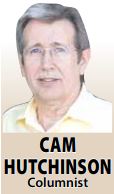
It’s easier than ever to become an organ donor
Don’t be like me.
Please sign up to be an organ and tissue donor. People need you, and the province made it easier this summer with its launch of an online registry.
Why haven’t I signed on to be a donor? Could it be in the recesses of my mind I thought signing up might lead to my sudden death? Could it be that I thought only other people die, and it won’t happen to me?
Of course, that is nonsensical. I have had the privilege of interviewing donors and recipients. In one instance, I interviewed both at the same time. In that case, we spoke four weeks after the surgery in Saskatoon.
Four years ago, Mia Holland gifted one of her kidneys to her brother, Jason Karapita. The two laughed and cried as they talked about their love for each other.
“Honestly, it takes me longer to decide what to wear for the day,” she said.
Jason, as you might expect, said having a fully functioning kidney was life altering. Looking back, Mia said he might have had the beginnings of kidney disease when he was eight or nine years old. By the time Jason was 40, he was knocking on death’s door.
He said he was hesitant to accept his sister’s kidney. She has young children, and what if there was a need for one of her children to need a kidney at some point in their lives.
Mia told him if he didn’t take it, she would donate it anyway.
“That feeling of giving is so incredible,” she said. “You could give the biggest Christmas present ever and it wouldn’t even hold a candle compared to how this feels.”
Jason summed up the love he has for his sister in three words. “She’s my hero.”
There are about 90 people a year in our province waiting for kidney transplants. Some will wait almost three years. That’s 437 dialysis treatments per person, the Saskatchewan Health Authority says. That’s not good.
The second interview I did relating to a transplant was at the 2017 Scotties curling championship in St. Catharines, where I was writing for Curling Canada. I was told the brother of Lauren Mann of Team Quebec had drowned a year earlier, and his organs had been donated.
I asked her if she would talk about it.
The person who received his heart was from St. Catharines and was at the rink watching the curling. He had “some how” connected with the family, and had met them. Lauren’s parents and sister were also at the rink.
“It’s heartbreaking. It will always be heartbreaking,” she told the CBC. “I know people say time heals all, but I don’t know how you ever get over that.” (Note: I couldn’t find a copy of my story, so I am using quotes from the CBC story that followed Curling Canada’s.)
“In a way he is here. When I knew the Scotties was in St. Catharines, I was almost less stressed because I thought I’m heading to his heart.”
Lauren told me that at least one family member had put an ear to the recipient’s chest to hear Adam’s heart.
I can only imagine how emotional that must have been.
Stories like these are why we should register to be donors.
I thought at my age, it’s too late to be a donor. I discovered that organs from donors older than 80 have been successfully transplanted. In one example, the liver from a 93-year-old man was successfully transplanted.
In 2018, there were 2,782 transplant procedures done in Canada.
And sadly, there were more than 4,300 remaining on waiting lists. A total of 223 people died while waiting for a transplant. I thought that number would have been higher.
According to stats, one tissue donor can help 75 people, and one organ donor can save eight lives. That is why it is important to register.
“With this organ and tissue donor registry, we have another way to support grieving families by confirming the intentions of their loved ones,” Saskatchewan Health Authority Medical Director for Donation Dr. Joann Kawchuk said in a news release. “Every person who registers increases the chance of a longer, better life for people waiting for a transplant.”
Just ask Jason Karapita about the importance of having his sister donate a kidney to him. Or ask the man watching curling who received a heart — a heart of gold.
To learn more about the registry, or to register to become an organ and tissue donor, visit www.givelifesask. ca.
-Cam Hutchinson
